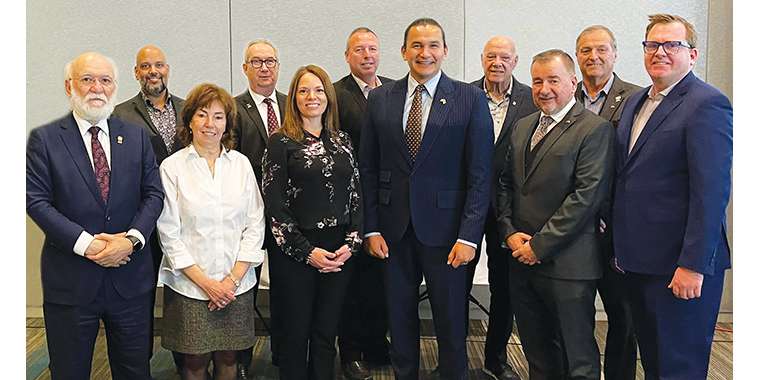On October 3, Manitobans cast their ballots in the Province of Manitoba’s 43rd General Election and elected a Manitoba New Democratic Party (NDP) provincial government led by Wab Kinew. Manitoba’s first indigenous Premier received 34 seats in the Legislative Assembly with the Progressive Conservatives (PC), receiving 22 seats and the Manitoba Liberal Party with one seat.
Before Election Day, the Manitoba Real Estate Association (MREA) asked each of the leading political parties for their positions related to important issues which impact Manitobans and the real estate industry. You can read the questions and each of the provincial political party’s full responses by scanning the QR code found at the end of this article.
NDP Housing Policy Promises
Here is a summary of the housing-related responses from the Manitoba NDP:
The Manitoba NDP wants to work with the Manitoba Real Estate Association and other stakeholders to make housing more affordable for families. We will keep the 50 per cent education property tax rebate and we will take it off peoples’ tax bills up-front.
The Manitoba NDP will support economic activity in the housing sector by:
• We will cut the PST on new rental builds to counter high interest rates and incentivize developers to create more housing supply.
• Conducting an audit to identify vacant and surplus land for infill and affordable housing.
• Develop and implement ways to reduce red tape to brownfield remediation.
The housing crisis is one of the most important issues facing Canadians — and we need to take action to improve access across the housing spectrum. Tackling these issues will require all hands on deck.
Together with community organizations and the private sector, we will work with all levels of government and Indigenous communities to tackle this crisis.
One of our earliest election commitments was our plan to end chronic homelessness by following the Houston model and making additional investments to repair and increase housing stock. We also want to develop more affordable housing, as well as rent-geared-to-income units. As outlined above, at the same time, we will introduce supportive measures to address the need for more housing supply.
“I want to welcome and congratulate Wab Kinew and the Manitoba NDP for their election win as Manitoba’s new government, and I’d like to the thank them for their commitments to making homeownership more affordable to for Manitoba families,” said Manitoba Real Estate Association CEO David Salvatore. “I’d also like to thank the outgoing PC government for all the work they did over the last seven years to make homeownership more affordable for Manitobans. On behalf of MREA, I look forward to working with the new government, and all interested and impacted partners to find solutions to housing issues across the entire Shelter Spectrum.”
Earlier in September, MREA released its report on Preserving Manitoba’s Affordability Advantage:
Improving Access to Homeownership. This report proposes specific and achievable policy recommendations and initiatives for Manitoba’s incoming provincial government, divided into three pillars: Inclusivity, Sustainability, and Supply.
Near the start of the election period, MREA commissioned public polling which showed that 58% of Manitobans ranked housing as one of their top three most important public policy issues for the campaign. According to the survey, nearly 70% of Manitoba renters do not believe they can afford to purchase a home in the province within the next three years.
The survey also asked respondents about a handful of the concrete and actionable policy initiatives that are outlined in the report:
• 76% of Manitobans overall agree that the provincial government and/or municipal governments should tax vacant and/or derelict properties.
• 69% of eligible voters overall agree that the provincial government should provide subsidies or tax incentives for first-time homebuyers.
• 67% of respondents overall agree that property developers should be legally required to dedicate a certain percentage of new residential units they build as “affordable housing” for low-income residents.
• 66% of Manitobans overall believe that labour shortages and high material costs are forcing developers to delay new housing construction.
• 53% of respondents agree that government delays in issuing permits are hindering new housing construction in Manitoba.
“This public polling shows very clearly that housing is a topic on the minds of Manitobans,” said Salvatore. “Government has an opportunity to make homeownership more affordable, to improve Manitoba’s housing price advantage, and to help more Manitobans attain homeownership. We’re ready to work with government to ensure that Manitobans can progress along the housing continuum with options that meet their budget, life stage, and needs.”
Jeremy Davis is the Winnipeg Regional Real Estate Board’s Director External Relations & Market Intelligence.



